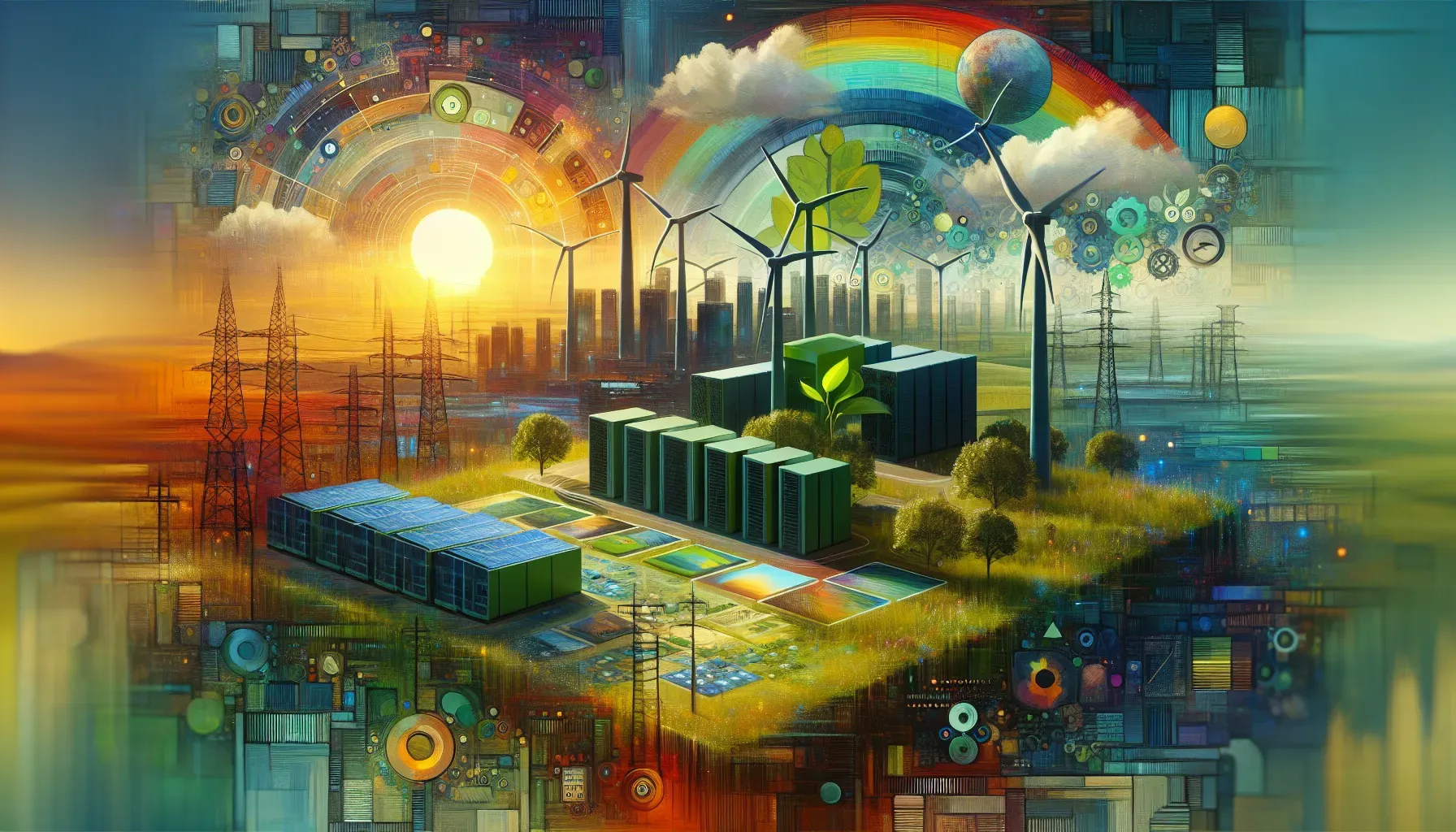Green Marketing: Nurturing Sustainable Practices in the Digital Domain

In today's digital age, the intersection of technology and environmental sustainability has become increasingly pertinent. As businesses strive to minimize their ecological footprint, the realm of digital marketing has embarked on a journey towards embracing eco-friendly innovations for a greener future. The "ClicksBuzz Blog" delves into the evolving landscape of sustainable digital marketing practices, exploring the promising trends and transformative strategies that are shaping a more environmentally conscious digital domain.
Embracing Eco-Friendly Innovations in Digital Marketing
The emergence of eco-friendly innovations within digital marketing signals a progressive shift towards sustainability in online consumer engagement. As brands seek to align with environmentally conscious values, leveraging these innovations can not only resonate with eco-minded consumers but also drive positive brand perception and loyalty. From sustainable packaging to carbon-neutral shipping, every aspect of the customer journey is ripe for eco-friendly adaptations.
Trends in Sustainable Digital Marketing Practices
One notable trend that is gaining momentum is the integration of renewable energy sources in powering digital infrastructure. As the demand for data storage and computing power escalates, companies are recognizing the need to transition towards renewable energy to fuel their digital operations. By harnessing solar, wind, or hydroelectric power, organizations can significantly reduce their carbon emissions while bolstering their green credentials in the eyes of environmentally aware consumers.
Integrating Renewable Energy for Digital Operations
The integration of renewable energy sources such as solar panels, wind turbines, and geothermal systems holds the potential to revolutionize the sustainability landscape of digital marketing. Data centers, which are notorious energy guzzlers, are increasingly adopting renewable energy solutions to mitigate their environmental impact. This not only diminishes reliance on fossil fuels but also enables businesses to partake in the global transition towards a low-carbon economy.
This approach not only reinforces a brand's environmental stewardship but also amplifies its appeal among ethically minded consumers who prioritize sustainable business practices.
The Role of Data Centers in Sustainability
Server farms and data centers are the backbone of the digital landscape, playing a pivotal role in storing, processing, and disseminating vast amounts of online information. However, their intensive energy consumption has raised concerns about their contribution to carbon emissions. To address this issue, innovative strategies are being adopted to curtail the carbon footprint of these essential digital infrastructures.
One increasingly prevalent approach involves implementing advanced cooling systems that optimize energy efficiency within server farms and data centers. By utilizing natural cooling methods or innovative heat management technologies, businesses can significantly reduce energy consumption while maintaining optimal operational temperatures. Such initiatives not only lower environmental impact but also yield substantial cost savings for enterprises through reduced electricity bills.
Reducing Carbon Footprint in Server Farms and Data Centers
The pursuit of sustainability in digital marketing extends beyond energy sourcing to encompass efficient data storage solutions that minimize environmental impact. The advent of cutting-edge technologies such as solid-state drives (SSDs) and cloud-based storage platforms has revolutionized data storage, offering more environmentally friendly alternatives to traditional hard disk drives (HDDs).
Innovative Cooling Systems for Energy Efficiency
Sustainable supply chain management lies at the crux of fostering environmental responsibility within the digital marketing landscape. From sourcing raw materials to distributing finished products, every link in the supply chain presents opportunities for integrating eco-friendly practices that minimize ecological impact.
Pioneering Sustainability in Data Storage Solutions
Deploying green procurement strategies, such as prioritizing suppliers with robust environmental commitments and ethical sourcing policies, can significantly reduce the carbon footprint associated with digital marketing endeavors. Moreover, implementing optimized transportation routes and eco-friendly packaging materials further contributes to mitigating environmental harm while nurturing sustainable supply chain management practices.
In conclusion, as the imperative for environmental sustainability continues to permeate every industry, including digital marketing, embracing green marketing practices remains paramount for fostering a harmonious coexistence between technological advancement and ecological preservation. By championing sustainable innovations through informative content on "ClicksBuzz Blog," businesses can advocate for a greener digital future while forging meaningful connections with eco-minded audiences worldwide.
Frequently Asked Questions
Eco-friendly innovations in digital marketing include practices that reduce environmental impact, such as using sustainable packaging, carbon-neutral shipping, and renewable energy sources. These innovations help brands connect with environmentally conscious consumers while enhancing their reputation and loyalty. Embracing such practices is essential for a greener digital future.
Data centers can reduce their carbon footprint by adopting renewable energy sources like solar or wind power. Additionally, implementing advanced cooling systems and optimizing energy efficiency can significantly lower energy consumption. These strategies not only mitigate environmental impact but also contribute to cost savings for businesses.
Sustainable supply chain management is crucial in digital marketing because it minimizes ecological impact at every stage, from sourcing materials to distribution. By prioritizing eco-friendly practices, such as green procurement and optimized transportation routes, businesses can significantly reduce their carbon footprint and promote environmental responsibility.
Renewable energy plays a vital role in digital marketing by powering data centers and digital infrastructure sustainably. By utilizing sources like solar or wind energy, companies can significantly decrease their carbon emissions, enhance their green credentials, and appeal to environmentally aware consumers who prioritize sustainability.
Advanced cooling systems benefit server farms by optimizing energy efficiency and reducing electricity consumption. By employing natural cooling methods or innovative heat management technologies, these systems help maintain optimal operational temperatures while lowering environmental impact and operational costs for businesses.
Check Out These Related Articles

Emerging Trends in Digital Mental Health Advocacy on a Global Scale

NFTs and Digital Marketing: Redefining Brand Ownership and Engagement Strategies

Revolutionizing Engagement: How AI is Redefining Digital Marketing Interactions

